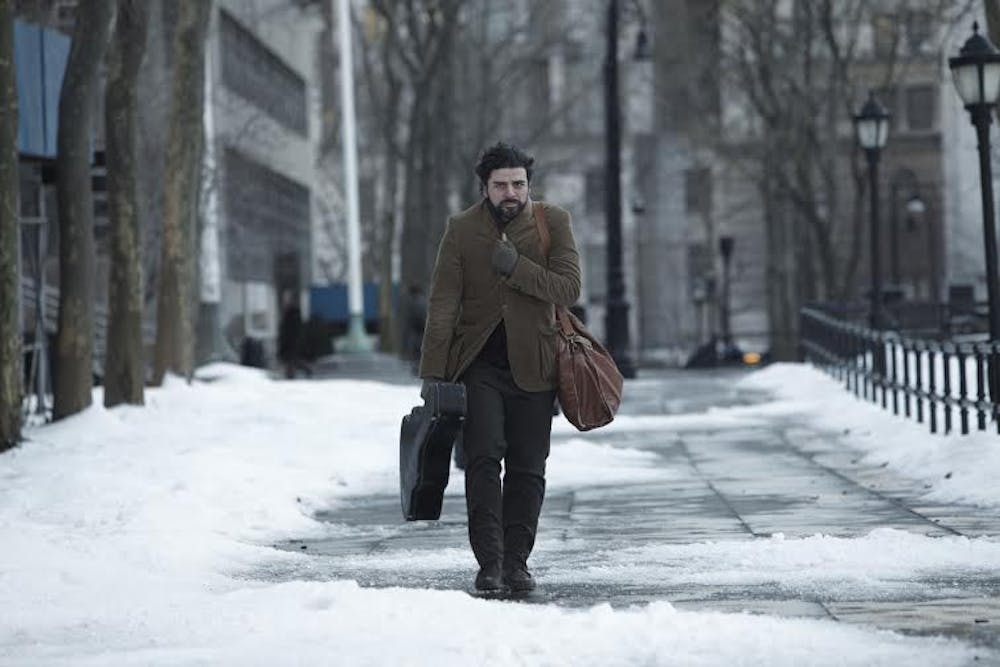In “Inside Llewyn Davis,” Oscar Isaac plays the slightly irked, but subtly depressed folk singing character of Llewyn Davis. He travels far across the country with futility just to find himself snubbed by a cast of strange folks. Initially seeking musicians, Isaac audition for the role when the Coen brothers realized they needed an actor who can also play music proficiently. With a soundtrack produced by T. Bone Burnett, who’s been behind a myriad of country and folks artists as well as film soundtracks from “Crazy Heart” to “The Hunger Games,” Isaac stepped comfortably into the role of Davis.
Isaac spoke to The Eagle’s David Kahen-Kashi about playing Davis in the film and singing live.
Eagle: What’s it like playing the straight man in the strange Coen brothers’ world of “Inside Llewyn Davis?”
Oscar Isaac: Well, that’s what they said they wanted to make theater of the common man and that’s what I think they always do. In this situation it’s a stranger in a strange land. Someone just passing through and marveling and horrified at existance in equal measure. So, yeah, it was getting into that reality of someone being so pressed by life and life squeezing him and these are the noises he makes.
E: You said in an interview that the Coen brothers like to make working on set as low-key as possible. Is it comforting to work like its a regular job?
OI: Completely, yeah, cause if you start going into what it means and all that they you freeze up. But the fact that it felt small and intimate and that we were just doing work, you forget that anyone’s even watching. It just made it easier.
E: Les Miserables had a similar technique where they sang live instead of pre-recording their performances. Is it nerve racking to do longer takes of a live performance?
OI: It’s a little scary to do it live, I mean live at a show, because you really only have one shot to get it right. I guess you can mess up and start again, but that’s very rare and usually kills the vibe if that happens. But filming it is a bit more like being in the studio. And now, it is something that I do, I try to record and do a take full, I try to go all the way through. So it’s a little bit more like that. I know if I f—k up I can do another take. but still the cameras were always very close because they don’t shoot with long lenses, they shoot all wide. Literally, they’re like that. So when I worked with T. Bone [Burnett] he said, “Just play it like you’re playing to yourself.” That’s something that I held onto very much. Just close your eyes and sing like your singing to yourself and just try to block all that other stuff out.
E: Sounds very intimate.
OI: And that’s the thing. With Les Mis, it’s big music and orchestration and people just crying and screaming. And so this is very not that. This is very direct and that was the balance though. Having it be intimate and to yourself, but at the same time, not all emo and masterbatory, you know. It had to still be unsentimental in a way.
E: Do you choose your roles based on the challenge or what you would want to watch?
OI: For me, it’s just what will hold my interest for the length it takes to do it. Is there enough there that I’m going to remain curious and hungry and keep investing in it for the length it takes to do the project. And sometimes you get all that from the script. Generally, for me, it’s about that. It’s about the character in the script. It there enough to invest in this character, but sometimes you open that up to maybe forty percent will be taken care of by the character, but then the other sixty percent is the director. Sometimes you balance those things out, but for me, mostly, it’s been when I read it does it fire up my imagination.
This interview has been edited for clarity and comprehension.
dkahen-kashi@theeagleonline.com





